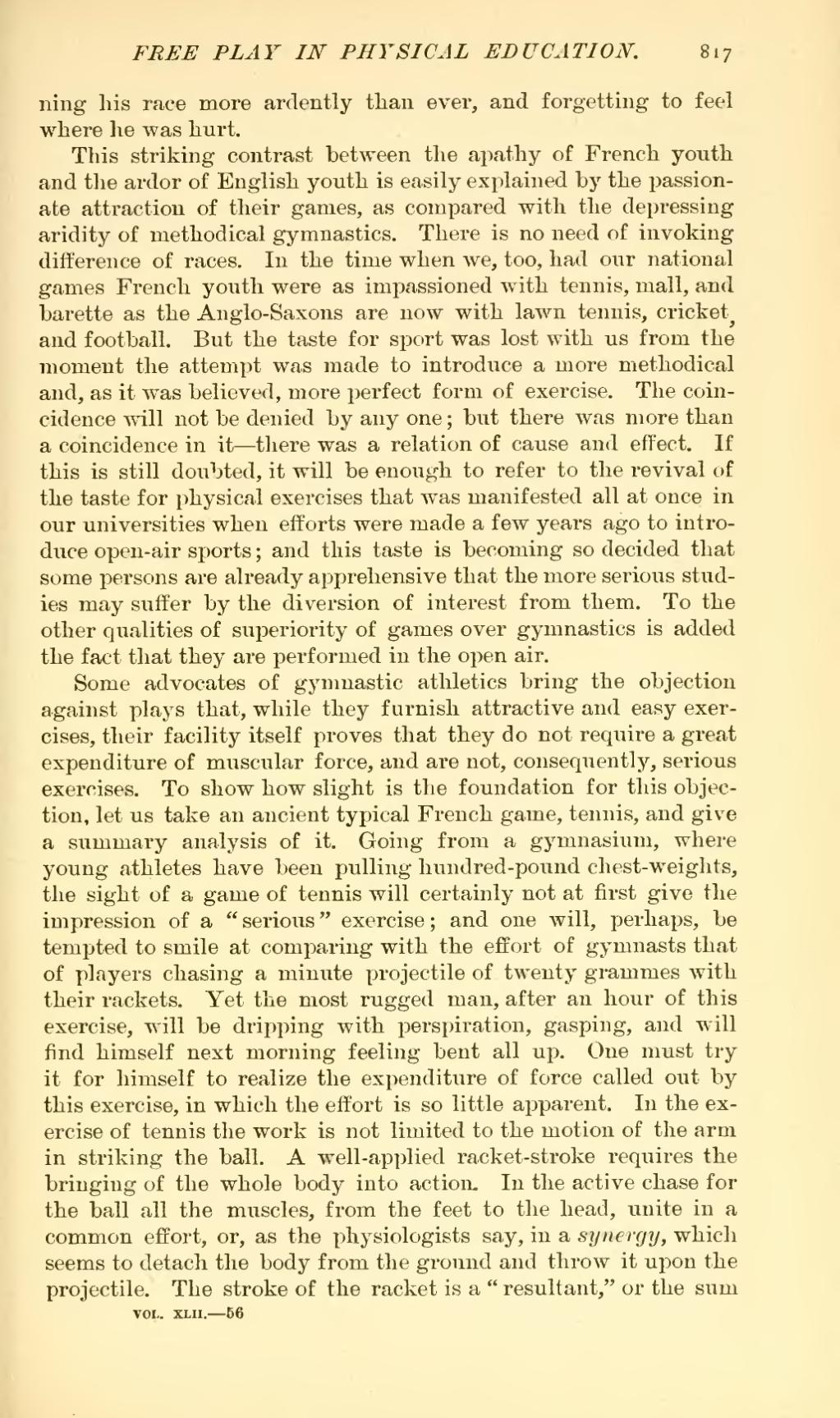ning his race more ardently than ever, and forgetting to feel where he was hurt.
This striking contrast between the apathy of French youth and the ardor of English youth is easily explained by the passionate attraction of their games, as compared with the depressing aridity of methodical gymnastics. There is no need of invoking difference of races. In the time when we, too, had our national games French youth were as impassioned with tennis, mall, and barette as the Anglo-Saxons are now with lawn tennis, cricket and football. But the taste for sport was lost with us from the moment the attempt was made to introduce a more methodical and, as it was believed, more perfect form of exercise. The coincidence will not be denied by any one; but there was more than a coincidence in it—there was a relation of cause and effect. If this is still doubted, it will be enough to refer to the revival of the taste for physical exercises that was manifested all at once in our universities when efforts were made a few years ago to introduce open-air sports; and this taste is becoming so decided that some persons are already apprehensive that the more serious studies may suffer by the diversion of interest from them. To the other qualities of superiority of games over gymnastics is added the fact that they are performed in the open air.
Some advocates of gymnastic athletics bring the objection against plays that, while they furnish attractive and easy exercises, their facility itself proves that they do not require a great expenditure of muscular force, and are not, consequently, serious exercises. To show how slight is the foundation for this objection, let us take an ancient typical French game, tennis, and give a summary analysis of it. Going from a gymnasium, where young athletes have been pulling hundred-pound chest-weights, the sight of a game of tennis will certainly not at first give the impression of a "serious" exercise; and one will, perhaps, be tempted to smile at comparing with the effort of gymnasts that of players chasing a minute projectile of twenty grammes with their rackets. Yet the most rugged man, after an hour of this exercise, will be dripping with perspiration, gasping, and will find himself next morning feeling bent all up. One must try it for himself to realize the expenditure of force called out by this exercise, in which the effort is so little apparent. In the exercise of tennis the work is not limited to the motion of the arm in striking the ball. A well-applied racket-stroke requires the bringing of the whole body into action. In the active chase for the ball all the muscles, from the feet to the head, unite in a common effort, or, as the physiologists say, in a synergy, which seems to detach the body from the ground and throw it upon the projectile. The stroke of the racket is a "resultant," or the sum

